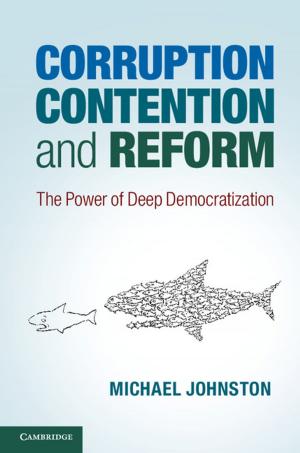Critical Elitism
Deliberation, Democracy, and the Problem of Expertise
Nonfiction, Social & Cultural Studies, Political Science, Politics, History & Theory, Religion & Spirituality, Philosophy| Author: | Alfred Moore | ISBN: | 9781108168687 |
| Publisher: | Cambridge University Press | Publication: | June 22, 2017 |
| Imprint: | Cambridge University Press | Language: | English |
| Author: | Alfred Moore |
| ISBN: | 9781108168687 |
| Publisher: | Cambridge University Press |
| Publication: | June 22, 2017 |
| Imprint: | Cambridge University Press |
| Language: | English |
Democracies have a problem with expertise. Expert knowledge both mediates and facilitates public apprehension of problems, yet it also threatens to exclude the public from consequential judgments and decisions located in technical domains. This book asks: how can we have inclusion without collapsing the very concept of expertise? How can public judgment be engaged in expert practices in a way that does not reduce to populism? Drawing on deliberative democratic theory and social studies of science, Critical Elitism argues that expert authority depends ultimately on the exercise of public judgment in a context in which there are live possibilities for protest, opposition and scrutiny. This account points to new ways of looking at the role of civil society, expert institutions, and democratic innovations in the constitution of expert authority within democratic systems. Using the example of climate science, Critical Elitism highlights not only the risks but also the benefits of contesting expertise.
Democracies have a problem with expertise. Expert knowledge both mediates and facilitates public apprehension of problems, yet it also threatens to exclude the public from consequential judgments and decisions located in technical domains. This book asks: how can we have inclusion without collapsing the very concept of expertise? How can public judgment be engaged in expert practices in a way that does not reduce to populism? Drawing on deliberative democratic theory and social studies of science, Critical Elitism argues that expert authority depends ultimately on the exercise of public judgment in a context in which there are live possibilities for protest, opposition and scrutiny. This account points to new ways of looking at the role of civil society, expert institutions, and democratic innovations in the constitution of expert authority within democratic systems. Using the example of climate science, Critical Elitism highlights not only the risks but also the benefits of contesting expertise.















